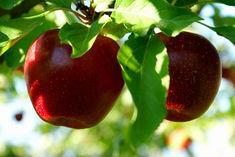
Apple extract could be the key in catching breast cancer tumours before they spread, according to new research carried out in America.
Researchers in New York found that apple extract given to rats had slowed the growth of adenocarcinoma tumours which are the biggest cause of breast-cancer deaths.
The American Institute for Cancer Research found the proportion of tumours which spread was directly linked to the amount of extract with the more apple the rats were given, the less the growth of the tumour was evident.
More than 80 per cent of rats suffered rapid tumour growth when denied apples as opposed to 57 per cent of those fed the human equivalent to one apple a day, according to the report in the Journal of Agricultural and Food Chemistry.
Professor Rui Hai Liu, of Cornell University's Institute for Comparative and Environmental Toxicology, said: "We not only observed that the treated animals had fewer tumours, but the tumours were smaller, less malignant and grew more slowly compared with the tumours in untreated rats.
"These studies add to the growing evidence that increased consumption of fruits and vegetables, including apples, would provide consumers with more phenolics, which are proving to have important health benefits."
Breast cancer is the most common form of cancer in the UK, with around 125 women diagnosed each day and the amount of anti-oxidant flavanoids in fruit, which are found in apples, oranges, grapes, plums, strawberries and bananas, is heavily linked to health benefits and a boosted immune system.



